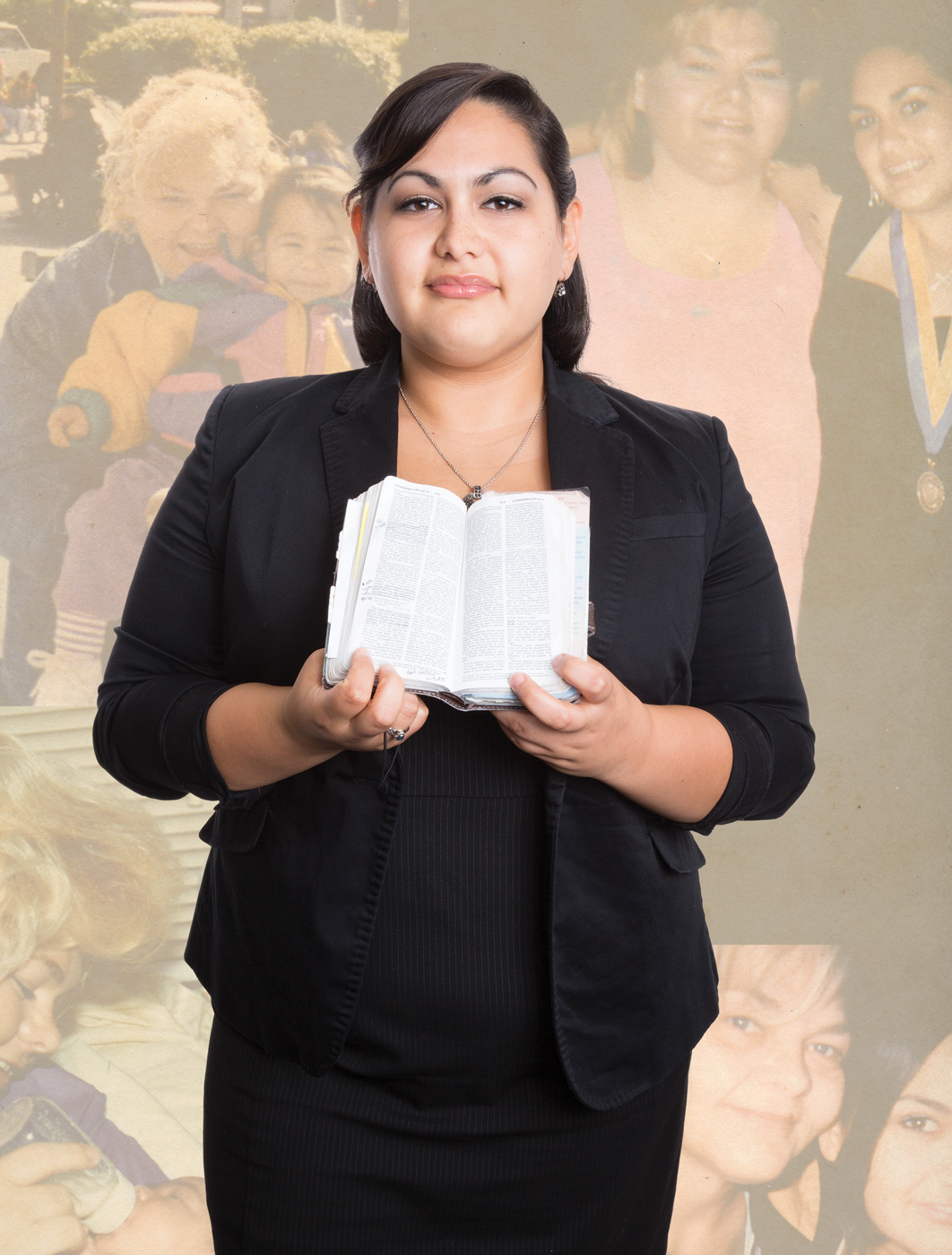Always End with Hope
When Melissa Lewelling strode across the stage in full regalia at her department’s graduation—summa cum laude medallion around her neck, her upcoming trip to the Cannes Film Festival for her student short film debut approaching, and her first professional job awaiting—she felt her mother’s absence in the audience.

Photo: Tom Sanders, ’14 MFA Photography
“I grew up below the poverty line in a rough part of downtown San Jose. My father was absent from my life. It was just my mom and me,” she says. Her mother instilled in her daughter fundamental beliefs that her voice mattered and that empathy was a bridge with the power to unite people around shared values and experiences.
“The backbone of why I love journalism,” she says, “is connecting with people and telling their stories.”
Losing her mother raised Lewelling’s awareness of former foster youths struggling to graduate from college. Lewelling herself floated on the periphery of the system before connecting with her adoptive parents. Rather than relying on the statistics of failure as its perspective, her student short film More Than a Number focused on the successes of three strong young women who forged their paths toward a degree despite the odds. “Each one had a different type of foster care story,” she says.
When Lewelling tells her own story she is also telling the story of her mother, immortalizing the determined woman whose faith in her daughter never ceased.
“When I would share a piece of writing with my mom that came from a difficult place, she would always say, ‘That’s great honey—but where’s the hope? You always have to end with hope.’”



